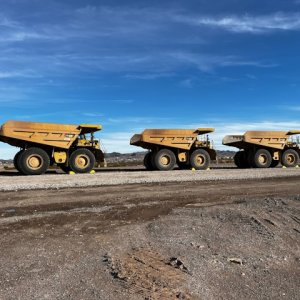Holistic View, Empathy Keys to Mining Project Development

STORY INLINE POST
Q: What is your evaluation of the Mining Law reform almost one year after it was published?
A: The reform is affecting the entire industry. It has led to a loss of competitiveness and interest in investment in Mexico. The exploration industry is taking the deepest damage. Many projects are now paralyzed and permits are not being granted, which is affecting many service providers and many business lines.
Q: What strategies have been implemented to offset the reform’s potential damages?
A: Companies have leaned toward resource-saving strategies as they have to be much more competitive internally in each mine when managing their resources. As business developers, it is essential to be empathetic. We have to be careful and know when and how to approach clients. Ultimately, we depend on them and if they are in crisis, other companies will face problems.
Companies are reevaluating their projects internally to determine what is the most strategic approach. Some companies aim to explore around their existing projects or within the country, but others are also considering leaving the country.
Q: What factors should have been considered when formulating the reform?
A: The decision-making process seems to have been taken lightly. In a country with a significant mining presence, numerous opportunities arise, fostering economic growth and industrial development. If the government had engaged with key stakeholders in the mining sector, a more thought-out law could have been established, benefiting the economy. Properly managed, a mining-rich country typically does not face economic issues. Unfortunately, the lack of central communication appears evident, as decisions seem to be made without consideration of the sector's impact on employment and the countless families relying on it for their livelihoods.
Q: What role do the governments of states with a mining tradition play in mediating between mining companies and the federal government?
A: Their role is crucial as the closure of mines directly affects the state’s economy and, by extension, the country. Mining companies also invest millions in state economies and support their economic development plans. Plant closures also put many jobs at risk. These are internal considerations each state must assess: its economic growth, projections, and the role it aspires to play in the national economy.
Whether political parties align or not, each state maintains a distinct agenda that should ideally be parallel to that followed by the federal government. A misalignment between the agendas may make entrepreneurs wonder whether they are fully supported by the state government, which makes them question what benefits they can expect from the federal government.
Q: What changes should service providers and suppliers consider after the publication of the Mining Law reform?
A: The reevaluation of costs will play a significant role in determining new opportunities. Mining companies are looking for cost savings. As a result, service providers and suppliers will have to reassess their costs to be competitive. Many companies will now consider smaller service providers, and these smaller companies can experience considerable growth if they navigate the market properly. Large companies have higher costs than smaller ones. Some smaller companies have an impressive capacity to deliver projects at cost.
The approach has changed. At this moment, we should be a supportive industry and not sell a product or service that is not needed. The industry should also provide a personalized service with close follow-up. Building trust with each client is fundamental.
Q: What is your approach to identifying potential opportunities in the mining sector?
A: Comprehensive research will always be essential. It is key to consider perspectives from all levels, from individuals in the mine to those in corporate offices, as they offer unique insights. While challenges, such as metal price fluctuations and project limitations, may seem evident, there are always opportunities for sustained company growth. Understanding objectives is crucial in providing meaningful support to clients.
It is vital not only to listen to directors, managers, or personnel in the mines but also to immerse oneself in on-site experiences. This firsthand exposure unveils the richness and potential of each project. Communication is also key, and generating opportunities hinges on cultivating good relationships and maintaining respect throughout the whole process. Losing the human connection diminishes the true purpose of work.
Q: What are the likelihood and anticipated key changes in the approach to the mining sector under the upcoming federal administration?
A: There is a debate on whether to cancel the Mining Law reform. Both industry and government need to collaborate, discuss and mediate, especially if the new government aims to support the industry. The person in charge must navigate these complexities without losing sight of established guidelines.
Lack of dialogue risks losses for the government, industry, and society. It is not just about authorizations; the impact of the reform on jobs and society must be considered. A thorough evaluation that considers community and state perspectives is crucial. This decision requires careful consideration, prioritizing societal well-being.
TBSEK is a cybersecurity developer that focuses on providing comprehensive visibility in networks to enhance the effectiveness of security investments. With over 25 years of experience, it specializes in cybersecurity and information governance strategies.








 By Fernando Mares | Journalist & Industry Analyst -
Tue, 02/20/2024 - 16:13
By Fernando Mares | Journalist & Industry Analyst -
Tue, 02/20/2024 - 16:13















